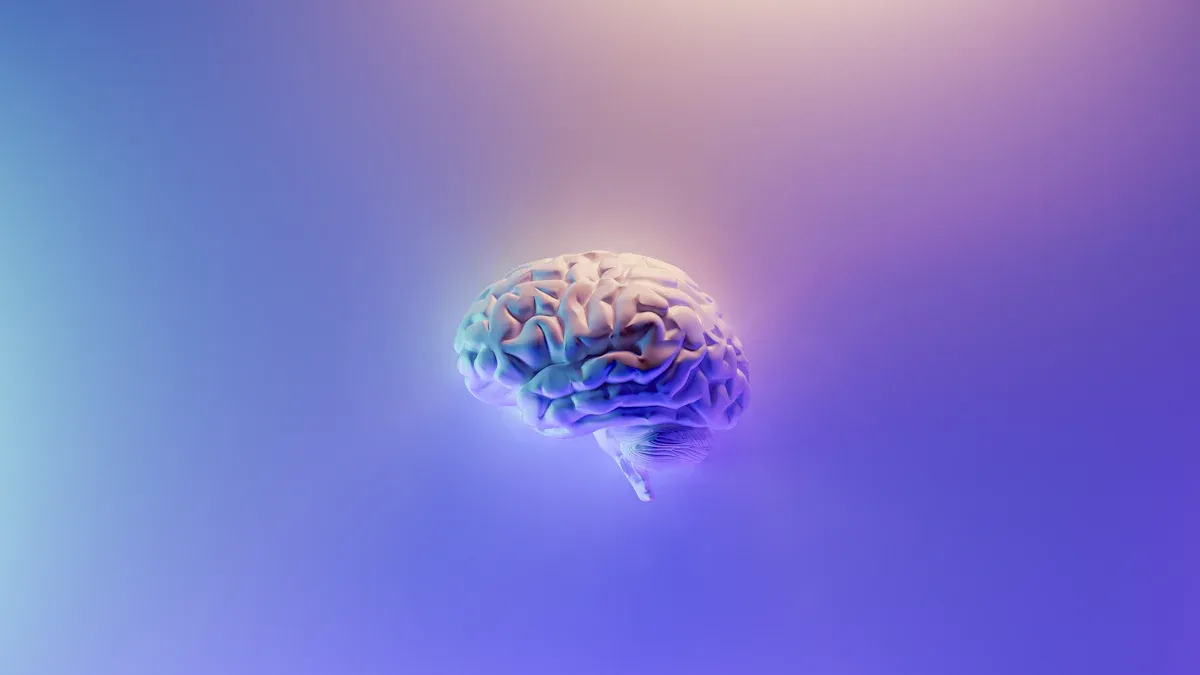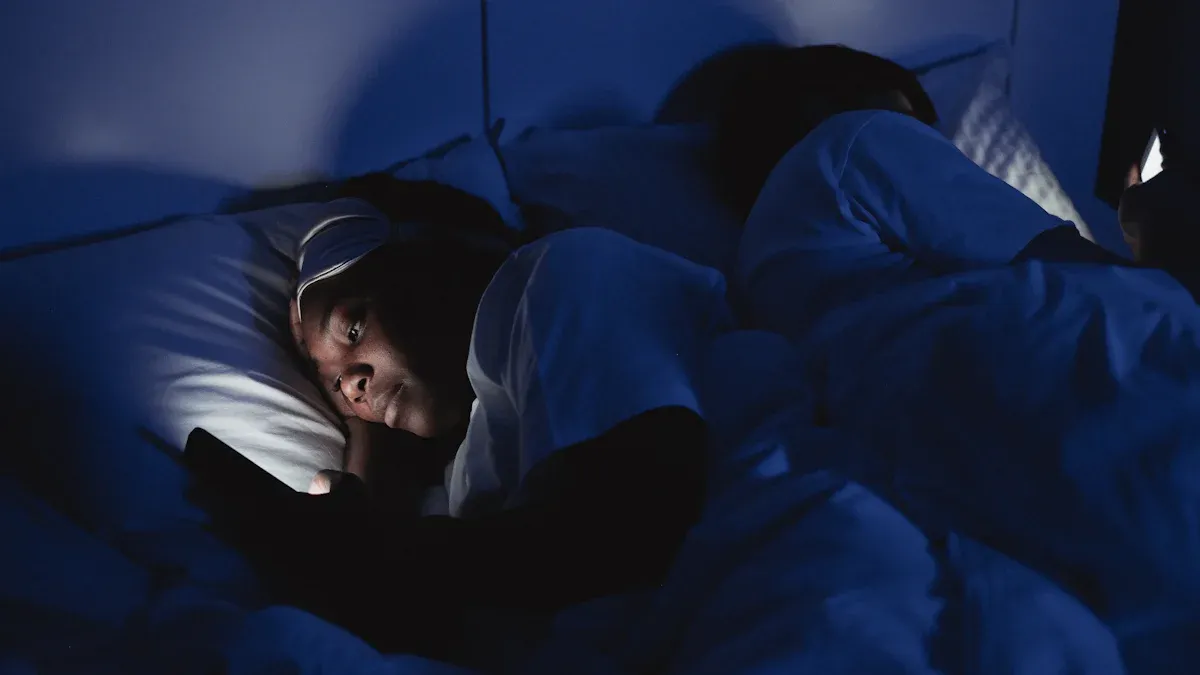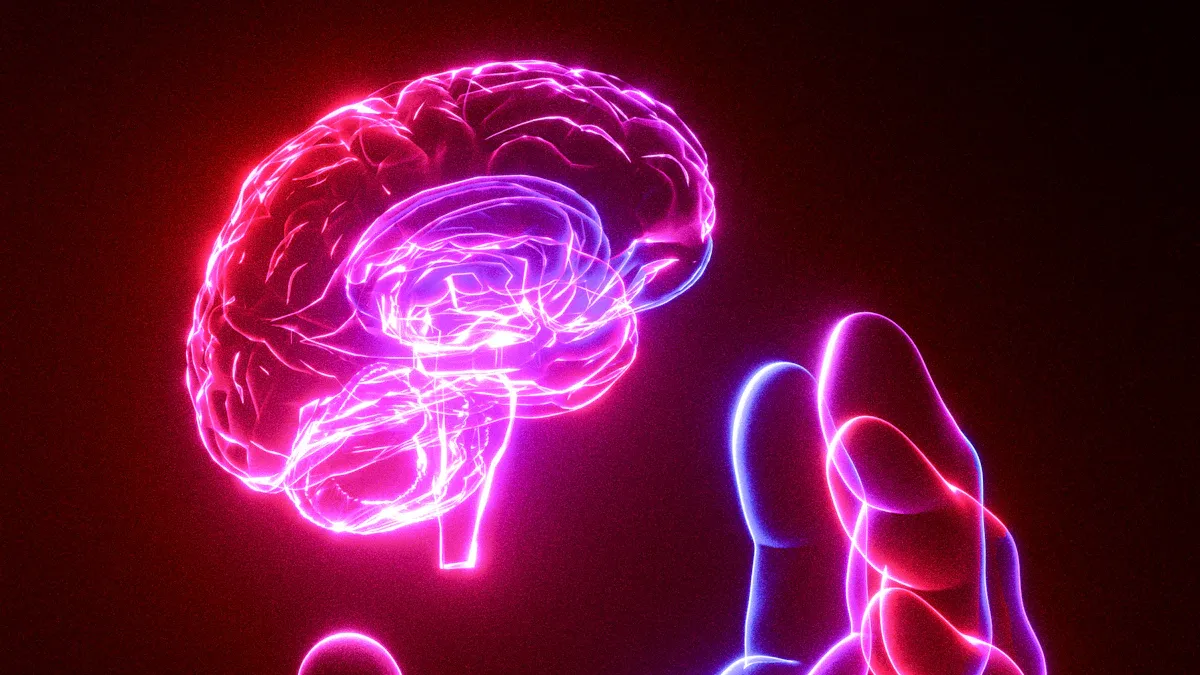Why Screen Time After Dark Disrupts Your Brain’s Natural Rhythm

You might notice that using your phone or computer before bed makes it harder to fall asleep. The Hidden Cost of Screen Time After Dark is more than just lost sleep—blue light from screens suppresses melatonin, a hormone that helps you feel sleepy, and can disrupt your circadian rhythm. Recent research suggests that this disruption may also impact the habenula, a brain region involved in regulating mood and motivation, by altering dopamine signaling. In fact, 41% of adults use screens within an hour before bedtime, which leads to poorer sleep quality and shorter sleep. Teens also report more trouble sleeping when devices stay in the bedroom. These changes can affect your mood and even raise health risks like stress or heart problems. You can take steps to protect your sleep, circadian rhythm, and brain health by limiting screen time after dark.
Key Takeaways
Blue light from screens lowers melatonin, making it harder to fall asleep and disrupting your body’s natural sleep-wake cycle.
Using screens before bed reduces REM sleep, which harms memory, mood, and learning, and leads to lighter, broken sleep.
Screen time at night raises stress and alertness, making it tough to relax and increasing health risks like high blood pressure.
Excessive screen use at night changes dopamine levels, causing mood swings and cravings for more screen time, which harms motivation.
Limiting screen use one hour before bed and choosing relaxing activities helps protect your sleep, mood, and brain health.
Blue Light and Your Body Clock

Melatonin Suppression
When you look at your phone or tablet at night, blue light enters your eyes and sends signals to your brain. This light, especially in the range of 446 to 477 nanometers, reaches special cells in your retina. These cells then send messages to the part of your brain that controls sleep. As a result, your brain slows down the production of melatonin, the hormone that helps you feel sleepy. Scientists have found that blue light does not always change melatonin levels right away during the day, but it can have a strong effect at night. The pathway starts in your eyes and ends in your brain, where it can block melatonin and keep you awake.
Tip: Lowering screen brightness or using a blue light filter in the evening can help your brain make more melatonin.
You might wonder how much melatonin drops after using screens at night. Studies show that just one hour of blue light exposure in the evening can cause a big decrease in melatonin, especially in young people. The table below shows how melatonin levels changed after one hour of blue light:
Participant Group | Baseline Melatonin (pg/mL) | Melatonin After 1 Hour Blue Light (pg/mL) |
|---|---|---|
Young participants | 29.0 | 7.5 |
All participants | N/A | Substantial decrease observed |
Women | N/A | Decrease observed |
Men | N/A | Decrease observed |
Circadian Rhythm Disruption
Your circadian rhythm acts like a natural clock that tells your body when to sleep and wake up. Blue light from screens can confuse this clock, especially if you use devices late at night. The timing, length, and pattern of light exposure all play a role. For example, blue light in the morning can help you wake up, but at night, it can push your sleep schedule later.
Researchers have compared blue light from screens to natural light. They found that blue light can shift your body clock, but the effect depends on when and how you use it. Morning blue light can move your sleep time earlier, while blue light at night can delay it. The table below shows how different light conditions affect your circadian rhythm:
Study / Author(s) | Light Type & Conditions | Circadian Phase Shift Effect |
|---|---|---|
Geerdink et al. (2016) | Morning blue light pulses (30 min) + sleep-advancing schedule | Phase advance (~84 min) of melatonin rhythm |
Appleman et al. (2013) | Morning blue light (2 h) + evening orange-filtered light | Phase advance (~132 min) |
Najjar and Zeitzer (2016) | Intermittent blue light flashes vs continuous light | Intermittent light caused up to ~3-hour delay |
Gooley et al. (2010) | Short-duration blue light at night | Blue light caused more sustained phase shift |
If you use screens at night, your body may think it is still daytime. This can make it harder for you to fall asleep and wake up on time the next day.
The Hidden Cost of Screen Time After Dark
Sleep Quality and REM Loss
You may think that screen time after dark only makes you feel a little tired, but it can do much more. The Hidden Cost of Screen Time After Dark includes changes to your sleep quality and the amount of REM sleep you get. REM sleep is important for memory, mood, and learning. When you use screens before bed, your brain gets less REM sleep and your sleep becomes lighter and more broken up.
Researchers have studied how screen time affects sleep in both adults and teens. They found that using screens for more than four hours a day, especially at night, leads to poorer sleep quality, shorter sleep, and more trouble falling asleep. The table below shows what scientists discovered:
Evidence Aspect | Description |
|---|---|
Population | Adolescents and young adults |
Screen Time Threshold | >4 hours daily linked to increased sleep difficulties |
Sleep Quality Measures | Pittsburgh Sleep Quality Index (PSQI) and other validated scales |
Key Findings | - Higher evening screen time correlates with poorer sleep quality, shorter duration, delayed onset, and fragmented sleep |
Study Types | Cross-sectional and cohort studies, including international samples and studies during COVID-19 pandemic |
Additional Notes | Adolescents meeting screen time and physical activity recommendations had significantly lower risk of poor sleep quality |
You may notice that using your phone or tablet in bed makes it even harder to sleep well. Studies from Norway show that screen use right before sleep or while in bed is more harmful than just using screens during the day. This habit can delay your sleep and make you wake up more often during the night.
Sleep scientists also found that screens before bed delay melatonin release, which is needed for REM sleep. Here is what happens when you use screens at night:
Light from screens delays melatonin, making it harder to fall asleep.
You spend more time trying to sleep and get less REM sleep.
Blue light from screens keeps your brain alert, which lowers REM sleep quality.
Exciting or stressful content on screens makes your brain more active, which breaks up your sleep.
Kids and teens are more sensitive to screen light, so their REM sleep suffers even more.
Using blue light filters can help, but the best way is to limit screen time before bed.
Note: REM sleep helps your brain process emotions and memories. Losing REM sleep can make you feel moody or forgetful the next day.
Hyper-Arousal and Stress
When you use screens at night, your body does not just lose sleep. The Hidden Cost of Screen Time After Dark also includes higher stress and hyper-arousal. Your brain and body get more alert, which makes it harder to relax and fall asleep.
You may feel your heart beating faster or notice that you cannot calm down after watching videos or playing games. Scientists found that screen time after dark raises your body's stress levels. Here are some changes that happen:
Your sympathetic nervous system becomes more active, which means your body is in "fight or flight" mode.
Cortisol, a stress hormone, does not rise as much in the morning if you use screens at night. This change can make you feel tired or stressed during the day.
High stress and hyper-arousal can lead to health problems like high blood pressure or insulin resistance.
These changes make it harder for you to sleep and disturb your circadian rhythm.
Artificial light from screens at night confuses your brain's clock, called the circadian rhythm. Blue light suppresses melatonin and keeps you awake. Your sleep and wake times get mixed up, which is called "social jetlag." This mismatch can make you feel sad, forgetful, or tired. Teens and young adults are most at risk because they use screens more often at night.
Tip: Try turning off screens at least one hour before bed. This helps your body relax and lowers stress.
Limiting screen time before bed can improve your sleep and mood. Some studies show that people who stop using screens before sleep feel less stressed and sleep better. The Hidden Cost of Screen Time After Dark is not just about sleep loss. It also affects your habenula, dopamine, and circadian rhythm, which control your mood and motivation. Protecting your sleep means protecting your brain and body from stress and hyper-arousal.
Habenula, Dopamine, and Circadian Rhythm

Dopamine and Brain Chemistry
Your brain uses dopamine to help you feel motivated and happy. Dopamine works as a messenger between nerve cells. It controls how you respond to rewards and helps you focus. The Hidden Cost of Screen Time After Dark habenula dopamine circadian rhythm becomes clear when you look at how these systems connect.
Inside your brain, special clock genes control when dopamine gets made and broken down. These genes tell enzymes like tyrosine hydroxylase and monoamine oxidase A when to work. Dopamine levels rise and fall in a daily pattern. You get more dopamine during your active hours. This rhythm helps you stay alert and feel good during the day.
The habenula sits deep in your brain. It acts like a tiny clock that works with your main body clock, the suprachiasmatic nucleus. The habenula keeps its own rhythm, even if the main clock changes. It gets signals from light and other brain areas. The habenula helps control dopamine by sending messages to the ventral tegmental area, which makes dopamine. When the habenula works well, your mood and motivation stay balanced.
If you use screens too much at night, you change how dopamine works. Bright light and exciting content make your brain release extra dopamine. Over time, your brain gets used to these dopamine surges. You start to crave more screen time, even if it does not feel good anymore. This cycle can make you feel frustrated or moody when you stop using screens.
Dopamine does not just make you feel pleasure. It helps you look forward to rewards and keeps you motivated. If your dopamine rhythm gets out of sync, you may feel less motivated and more tired.
Reward System and Sleep
Your brain’s reward system helps you seek out things that feel good. This system uses dopamine to push you toward rewards. The Hidden Cost of Screen Time After Dark habenula dopamine circadian rhythm shows up when digital devices hijack this system.
When you use screens at night, you trigger your reward system over and over. Social media, games, and videos make your brain release dopamine, just like eating or winning a prize. This constant stimulation can mess up your sleep-wake cycle. Your brain starts to expect rewards at night, which delays sleep and confuses your body clock.
Digital stimulation also affects your circadian rhythm. The mesolimbic dopamine system connects to your master clock, the suprachiasmatic nucleus. Rewarding activities can shift your sleep timing. Blue light from screens suppresses melatonin, making it harder to fall asleep. Your sleep becomes lighter and more broken up.
You may notice changes in your mood and motivation after using screens at night. Dopamine surges make you want more screen time, but losing sleep makes you feel tired and irritable. Healthcare professionals avoid screens late at night to protect their dopamine balance and keep their motivation strong.
Here are some problems that happen when your reward system and sleep get out of sync:
Adolescents often stay up late and use screens, which leads to circadian misalignment.
Early school start times and nighttime device use make sleep problems worse.
Poor sleep increases impulsivity and risk-taking.
Mood and reward circuits in the brain suffer from sleep loss.
Disrupted sleep raises the risk for addiction and mood disorders.
Sleep loss makes it harder to process emotions and control your behavior.
Tip: Try to avoid screens between 10pm and 4am. This helps your brain keep a healthy dopamine rhythm and supports better sleep.
The Hidden Cost of Screen Time After Dark habenula dopamine circadian rhythm affects your motivation, mood, and sleep. Protecting your brain’s reward system and circadian rhythm helps you feel happier and more focused each day.
Healthy Nighttime Habits
Reducing Screen Exposure
You can take simple steps to limit screen time before bed and help your brain relax. Many experts recommend setting a digital curfew. Turn off all electronic devices at least one hour before you plan to sleep. This gives your body time to wind down and prepare for rest.
Here are some easy ways to reduce screen exposure in the evening:
Install blue light filters or use night mode on your devices to lower blue light emission.
Lower the brightness on screens during the evening.
Remove electronic devices from your bedroom to create a screen-free sleep space.
Use a traditional alarm clock instead of your phone to avoid late-night screen temptation.
Set clear boundaries by turning off devices 30 to 60 minutes before bed.
Replace screen time with relaxing activities like reading a physical book, taking a warm bath, or practicing deep breathing.
Schedule times during the day to check messages so you do not feel the need to check your phone at night.
Tip: Creating a screen-free bedroom helps you avoid late-night scrolling and supports better sleep.
Some studies show that using blue light filters or glasses may help you feel like you fall asleep faster, but they do not always improve sleep quality for everyone. Removing screens from your bedtime routine and replacing them with calming activities works best for most people.
Better Sleep Hygiene
Good sleep hygiene means building habits that help you sleep well every night. Bright screens and exciting content keep your brain alert and make it harder to relax. You can improve your sleep by turning off devices at least one hour before bed and making your bedroom dark, quiet, and cool.
Try these healthy evening routines:
Read a physical book or write in a journal.
Practice meditation, mindfulness, or gentle stretching.
Take a warm bath to relax your muscles.
Listen to calming music or nature sounds.
Dim the lights in your home as bedtime approaches.
Calming activities like reading or meditation help your body know it is time to sleep. These routines support your natural circadian rhythm and make it easier to fall asleep. When you avoid screens and choose relaxing habits, you give your brain the best chance for restful, healthy sleep.
You can protect your brain’s natural rhythm by limiting screen time after dark. The Hidden Cost of Screen Time After Dark habenula dopamine circadian rhythm includes poor sleep, mood changes, and health risks.
Blue light from screens lowers melatonin and disrupts sleep.
Dopamine surges from digital content affect your motivation and mood.
Healthy habits like reading, relaxing, and keeping a cool, dark bedroom help you sleep better.
Benefit | How It Helps You |
|---|---|
Improves sleep and mood stability | |
Dopamine Control | Supports focus and emotional health |
Boosts memory, learning, and heart health |
Choose relaxing activities before bed. You will feel happier, more rested, and ready for each day.
FAQ
What is blue light, and why does it affect your sleep?
Blue light comes from screens like phones and tablets. Your eyes send signals to your brain when you see blue light. This light lowers melatonin, which makes you feel less sleepy at night.
How long before bed should you stop using screens?
You should turn off screens at least one hour before bedtime. This helps your brain relax and lets your body make more melatonin.
Try reading a book or listening to music instead.
Can blue light filters or glasses help you sleep better?
Blue light filters and glasses can lower blue light exposure. You may fall asleep faster, but they do not always improve sleep quality for everyone.
Tool | Helps Fall Asleep | Improves Sleep Quality |
|---|---|---|
Blue Light Filter | ✅ | ❌ |
Blue Light Glasses | ✅ | ❌ |
Why do you feel more stressed after using screens at night?
Screen time keeps your brain alert and raises stress hormones. You may feel your heart beat faster or find it hard to relax.
Your body stays in "fight or flight" mode.
Sleep becomes lighter and less restful.
See Also
Exploring Cerebral Astrocytoma And Its Impact On Brain
A Comprehensive Guide To Brainstem Glioma And Variants
Ependymoma Defined With Common Symptoms And Signs

